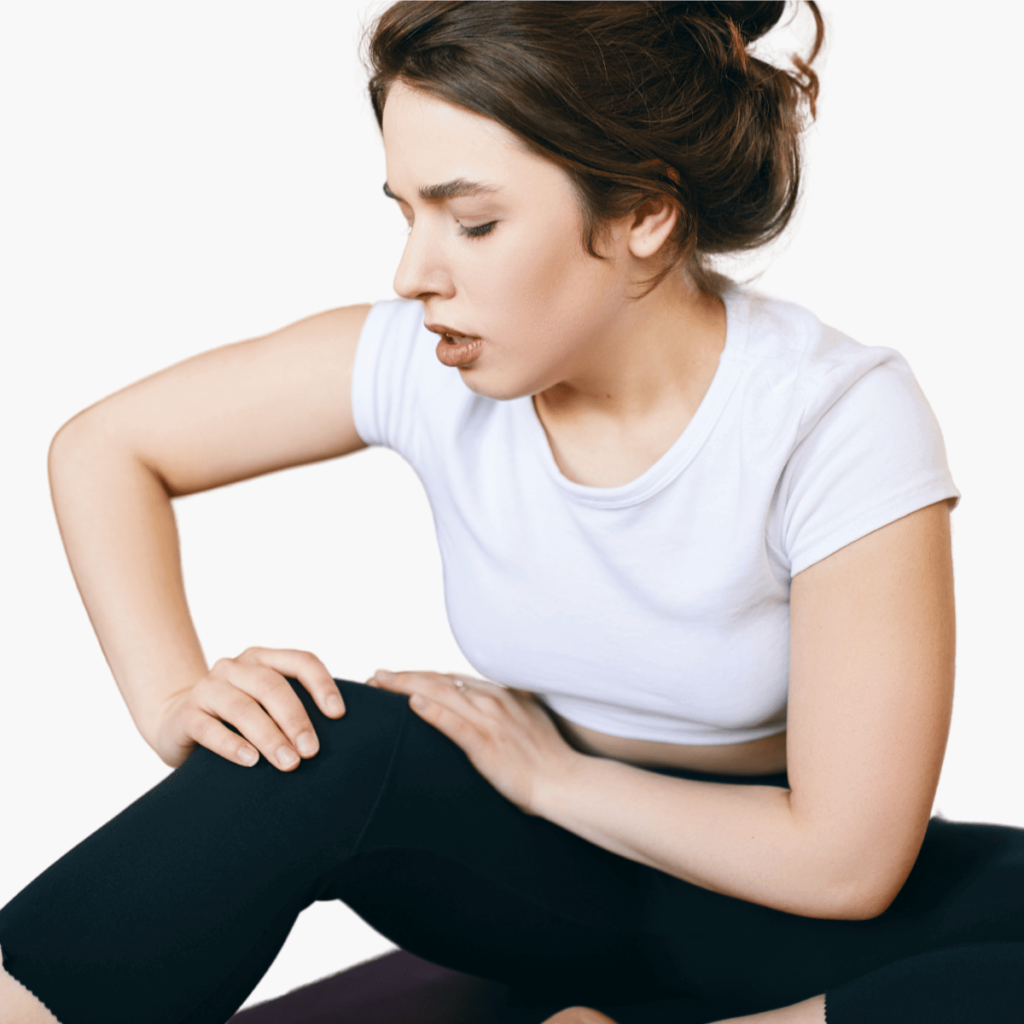Heads up! We may use affiliate links in this post. You'll never pay more, but we might earn a small commission if you buy - thanks for supporting us! See our full disclosure here.
Drinking water may not be as exciting as a passionfruit and mango smoothie, but it IS essential for our overall health and well-being, yet many of us don’t drink enough of it.
Dehydration can sneak up on us, causing a range of symptoms that often go unnoticed.
In this blog post, we’ll explore 10 very important signs that indicate you may not be getting enough water.
From subtle cues to more obvious warnings, these signs serve as reminders to prioritise hydration in our daily lives.
How Much Water Should I Be Drinking Per Day?
The amount of water you should drink per day varies depending on several factors, including your age, weight, activity level, and climate.
According to the NHS website, it is recommended to aim for “six to eight cups of fluid a day”, which is equivalent to approximately 2 litres or half a gallon.
However, individual hydration needs may differ, and it’s essential to listen to your body’s cues for thirst and adjust your water intake accordingly.
I Hate The Taste Of Water, Are There Any Other Ways To Stay Hydrated?
If you dislike the taste of plain water, there are several alternative ways to stay hydrated and meet your fluid needs.
One option is to infuse your water with natural flavours, such as slices of lemon, cucumber, or mint, to enhance its taste without adding calories or sugar.
You can also try drinking herbal teas, coconut water, or flavoured sparkling water as refreshing alternatives to plain water.
Additionally, consuming water-rich foods like fruits and vegetables, such as watermelon, cucumber, and strawberries, can contribute to your daily fluid intake.
1. Persistent Thirst

One of the most obvious signs of dehydration is persistent thirst.
This sensation is regulated by hormonal mechanisms, including the release of vasopressin, which prompts the kidneys to conserve water when fluid levels are low.
Research has shown that the brain’s thirst centre, located in the hypothalamus, responds to changes in blood osmolality, triggering feelings of thirst to encourage fluid intake.
So, if you find yourself constantly reaching for a glass of water throughout the day, your body may be signalling that it’s not getting enough hydration.
2. Dark Urine
According to a study by Frontiers in Nutrition, the colour of your urine can be a clear indicator of your hydration status.
Dark yellow or amber-coloured urine suggests that you may be dehydrated.
Inadequate water intake leads to more concentrated urine, indicating that your body needs more fluids.
YOU MIGHT LIKE THESE TOO:
- If You Have One Of These 8 Signs, You Might Be Drinking Too Much Water!
- 3 Super-hydrating Smoothie Recipes To Drink All Summer Long
- 6 Delicious High-Calorie Smoothie Recipes For Weight Gain
3. Dry Mouth and Lips

Dry or chapped lips can be caused by external factors such as certain weather conditions, particularly in cold, dry climates or during winter.
Exposure to harsh winds, low humidity, and cold temperatures can strip moisture from the delicate skin on the lips, leading to dryness, chapping, and discomfort.
Persistent dry lips, however, may also signal underlying dehydration. When the body is not adequately hydrated, it prioritises essential functions like maintaining blood pressure and regulating body temperature over less critical functions like keeping the lips moist.
As a result, the body may conserve moisture by reducing saliva production, leading to dryness in the mouth and lips.
4. Fatigue and Weakness
A British Journal of Nutrition study examined the effects of hydration status on cognitive performance and mood in healthy young women.
The findings showed that even mild dehydration led to impairments in cognitive function, including reduced attention, increased fatigue, and decreased alertness.
Additionally, participants reported more negative mood states, such as tension, anxiety, and fatigue, when they were dehydrated compared to when they were adequately hydrated.
These findings highlight the importance of maintaining proper hydration for optimal cognitive performance and mood regulation.
5. Headaches

Headaches are a common symptom of dehydration and can range from mild tension headaches to severe migraines.
Dehydration reduces blood flow and temporarily contracts the brain, leading to headaches.
A study titled “Increased Water Intake To Reduce Headache” has shown that increasing water intake can help reduce the frequency and severity of headaches, especially migraines.
Recognising headaches as a potential sign of dehydration is essential for maintaining hydration and preventing discomfort.
But don’t drink too much water! I know it may sound counterintuitive, but excessive amounts of water can lead to a condition known as water intoxication or hyponatremia, which can, in rare cases, cause headaches among other symptoms.
Water intoxication occurs when the balance of electrolytes in the body is disrupted due to an overload of water consumption, leading to a dilution of sodium levels in the blood.
In cases of water intoxication, the excessive intake of water overwhelms the kidneys’ ability to excrete it, causing the body’s sodium levels to become dangerously low.
This imbalance in electrolytes can lead to symptoms such as headaches, nausea, vomiting, confusion, seizures, and in severe cases, coma and even death.
6. Dizziness and Lightheadedness
According to Healthline, dizziness and lightheadedness can be warning signs of dehydration, often stemming from blood pressure and volume changes due to inadequate fluid intake.
When the body lacks sufficient hydration, blood volume decreases, which can lead to a drop in blood pressure upon standing up—a condition known as orthostatic hypotension.
This sudden decrease in blood pressure can cause dizziness and lightheadedness, especially when transitioning from a seated or lying position to standing.
These symptoms can be particularly pronounced in individuals who are already prone to low blood pressure or who engage in activities that promote fluid loss, such as exercise or exposure to hot temperatures.
Recognising dizziness and lightheadedness as potential signs of dehydration is crucial for taking prompt action to rehydrate and prevent further complications.
7. Dry Skin

Dry skin is a common symptom of dehydration and can result from inadequate moisture levels in the body.
This can compromise skin barrier function and reduce skin elasticity, leading to dryness and dullness.
Maintaining proper hydration is essential for supporting skin health and preventing dry skin.
By ensuring adequate water intake and using moisturisers to lock in hydration, you can help keep your skin soft, smooth, and hydrated.
RELATED: 12 Hydrating Skin Recipes Using Natural Body Oils
8. Constipation
Constipation, characterised by infrequent bowel movements and difficulty passing stools, can be a sign of dehydration.
When the body lacks sufficient water, the colon absorbs more water from the stool, resulting in hardened stools that are difficult to pass.
Research has shown that dehydration can lead to reduced stool volume and slower transit time through the colon, contributing to constipation.
Increasing water intake can help soften stools, promote regular bowel movements, and alleviate constipation symptoms.
It’s important to note that some other lifestyle factors may cause constipation too:
Inadequate dietary intake of fibre, carbohydrates, and fluids
Reduced physical activity
Fluid losses due to diarrhoea
9. Muscle Cramps

Muscle cramps are often an indication of dehydration and electrolyte imbalances.
When the body lacks sufficient fluids, electrolytes such as sodium, potassium, calcium, and magnesium become depleted, leading to muscle fatigue and increased susceptibility to cramps, especially during and after exercise.
A review by the Journal of Sports Sciences notes “Since it is established that dehydration will impair exercise capacity and can pose a risk to health, the intake of fluid during exercise to offset sweat loss is important.”
Proper hydration and replenishment of electrolytes are crucial for preventing muscle cramps and maintaining optimal muscle performance.
10. Reduced Urination
Reduced urination frequency or passing small amounts of urine can indicate dehydration.
This reduction in urine volume occurs as the kidneys conserve water in response to dehydration, resulting in concentrated urine.
If this is less than 400ml per day, the medical term for this is oliguria.
According to Healthline, the most common cause of oliguria is dehydration, but other causes are:
Infection or trauma
Urinary tract obstruction
Medications
By staying attentive to changes in urinary habits and ensuring adequate fluid intake, you can support your body’s hydration needs and prevent the negative effects of dehydration.
Save on Pinterest for later?

Final Thoughts
Recognising the signs of dehydration is crucial for maintaining optimal health and well-being.
By paying attention to these 10 important signs, you can ensure that you’re getting enough water to support your body’s vital functions.
Remember to drink water regularly throughout the day and listen to your body’s cues for hydration!

